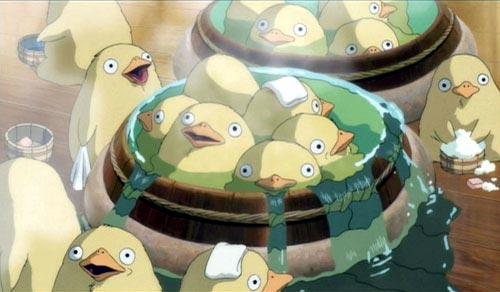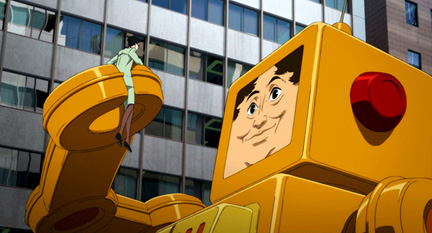At some point in our short lives we are all forced learn to cope with difficult things. Exposure like this is almost always an uncomfortable experience, but for Clayton Miller things seemed to have hit stone cold bottom. In some unnamed industrial yard in some unnamed city, Clayton was laying sideways in fresh mud beside rusty tracks. Clayton was now learning to cope with one of the most difficult things imaginable: Pain, but Clayton was lucky to know exactly what kind of pain he had to cope with. The pain of a thirty eight caliber bullet shot out of a revolver from about fifteen feet into the left side of Clayton’s belly. At this exact moment Clayton was also learning how to cope with the most difficult thing imaginable: the inevitability of a quickly approaching death. One angry bullet and one sour drug deal.
I came to him from a horse, a horse inside a horse. I had grown tired of the horse. It was fed the same thing every day. How do you expect it to taste? Humans have, by far, the farthest ranging appetites, although not quite as far reaching as my own. It was in this state of mind, having abandoned the horse, that I happened upon Clayton. I watched him get shot, and watched his friends drive off without him. “Poor man,” I thought, “you do not need to die like this, you and I could share so much.” I decided to establish communication as quickly as possible.
No sooner had I begun this endeavor, without even breaking to take in a snack, Clayton managed to get to his feet. Of course, no single direction was any worse than the others, so Clayton started stumbling along the tracks, but he wasn’t really going anywhere. I spoke up, “Where are you going Clayton? You’re dying.” Clayton spun around.
“Hey! Help me! I’ve been shot. Where…?”
“Look down, you’re dying, I can help.”
“What? Oh goddamned little blood-sucker leave me alone, I need this stuff right now!”
“Well that’s mildly insulting, but don’t even try it. I’m pumping numbing agents and antiseptics into your blood as we speak”
“I’m hallucinating now? Have I lost that much blood?”
“No , but you’ve lost a lot. There’s something dead inside you, something that was never really alive. Dead things like that are only good at one thing, making living things dead too.”
Clayton fell over at this point. Am I that difficult to talk to? I suppose I am.
“Look my friend, if you’re hallucinating you will die anyway; I can get it out of you and give you chance to get out of here.”
“What’s the catch?”
“You let me live inside you, obviously. You won’t even know I’m there.”
“Fuck it, I am dying. Why not?”
Clayton screamed in disgust as I followed the bullet hole into his belly, and then screamed in pain as I pushed it out. He had already passed out when I started to clot up the blood in the opening. I took what I needed, but not more than was necessary. When he woke up six hours later as the sun was coming up, he went through the usual process of denial: wondering why he was there, if he dreamt it. He got pretty shook up when he found the bullet on the ground. Eventually I had to speak up.
“Might want to head home Clayton. You could still die out here.”
He looked down at his gut in surprise.
“I’m crazy aren’t I? I imagined some parasite crawl into my belly and pull this bullet out me and now I’m hearing voices and now I’m not talking to anyone!”
After saying this he just got up and started walking. I asserted my presence several times but he did not react. He walked for a couple hours, found a highway, and hitchhiked back into the city. He rode in the back of a pickup.
We didn’t speak again until he got home. This treatment isn’t really new to me.
“I’m not going to go away just because you’re ignoring me Clayton. I’m here to stay, and as you very well know I’ve also established communication. I don’t intend on being silent even if you do. You’re not even crazy you know, you made a life saving decision by letting me help you. Now you can go on living. Am I really that much of a burden?”
“You’re in my head, you speak directly to my brain… how can you be real? Leeches can’t talk.”
“It’s the only way I can talk to you Clayton; just think of the fact that you can’t ignore me as good manners. I’m not incredibly chatty, but it’s impossible not to communicate once you learn how.”
“None of this proves you’re real. Why is this happening to me? I only sold the drugs; I never used them, as if getting shot wasn’t bad enough.”
“You want proof fine.”
I wiggled just a bit in my lodging, not enough to hurt Clayton, but enough to make him uncomfortable. He yelped.
“What are you?! Some kind of alien? A government project gone wrong? What do you want from me?”
“I just want to live, Clayton, that’s all. I will have no noticeable effect on your physicality. I evolved on this planet just as your species did. I’m not surprised you’ve never heard of the parasite that talks to its host, that sort of thing is quite frightening to your kind.”
“I… but… you’re in my head that’s not fair. I can’t handle this. I’m going to the hospital. They’re going to kill you.”
The nerve and dishonesty of some humans! I could have left him for dead by those horses, but instead I saved him. Now he was running down the stairs of his apartment building to try and get someone to kill me.
“I saved your life Clayton, we made a deal. If you did not understand the terms then it is your fault. I understand that this situation is not uncommon among your kind.”
Clayton hailed a cab and got in.
“Take me to the nearest hospital… hurry.”
“I see you aren’t bluffing Clayton, well nor am I, I have power over you. I will kill you before you reach your destination. I’m releasing a powerful toxin into your blood right now, soon you will start to feel sick, stop this or I will increase the amount to lethal levels.”
It wasn’t but a few seconds until Clayton was puking in the back of the cab. He ordered the driver to go faster so I released a bit more of the toxin into his blood stream. Soon he was on his side in pain, retching, but still he ordered the cab on. I was now getting close to lethal levels. I didn’t want to kill this man, but I was not ready at all to die. Why did he have to drag this on? This is the human condition as I understand it: always fighting everything to maintain their own ideals of normalcy, but never succeeding. I won out with Clayton, of course. I was just about to give up on mercy when he told the cap driver to pull over and stop. He fell out of the cab and onto the street and cried out.
“I give up! You win; get it out, make it stop.”
I complied at once, as I had no real desire to make the man suffer.
“I am releasing a neutralizing agent, Clayton; you will begin to feel better soon. I apologize for bringing such pain and discomfort to you. I wish to live peacefully, but I must defend myself when necessary. I hope never to have to use this power again.”
When Clayton was feeling better he got up and had the cab take him back to his apartment. He spoke up when we got there.
“I don’t know how to handle this… this is all so strange… why me?”
Ah the other classic trademark of the human condition.
“There is no why Clayton. You were dying, I found you, now we both live.”
“I don’t know… I need to call my boss…”
Clayton called the drug boss after a few minutes of silence. As it turns out, the drug deal he was involved in went very poorly, apparently the buyers had made off with all the money and all the drugs. The boss was so upset over this that he killed the other two who ditched Clayton after he got shot. Then the boss told Clayton that he should be dead, but since he had got out of there alive that Clayton didn’t deserve to die again. His debt to the group had been paid, but the boss also said that Clayton no longer had work with them. A good survivor but a bad pack horse. I thought this was a compliment. Clayton just seemed depressed. He went to sleep. And then that’s all he did for a few days. He hardly ate or did anything but sleep. I tried hard to be understanding; he had been through what humans commonly refer to as “a lot”, but they taste so bad when they sleep all the time, when they don’t eat and when they do eat, they eat the same thing over and over. I had to help him out. I wanted to push him in a direction that would be better for both of us.
“This lifestyle is not sustainable for either of us Clayton. Why don’t you try to find work or better food or friends?”
“You don’t pay rent, you little shit. Why should I listen to you? Are you going to poison me again? I’d be dead without you or I’m dead with you. What’s the difference?”
“I don’t want to hurt you Clayton, I just want us to live, and I want a chance for us to grow.”
“There is nothing for me here. I’ve been running drugs since I was thirteen and now I have nothing. I will run out of money soon and then what? I never even graduated from high school and I’ve been declared dead to my only friends. Cut off. All I have is you. Do you know what it’s like to be cut off? I bet you don’t. You’ll just use me until you can’t anymore and then once again I’ll be left for dead; well… let’s get something to eat.”
Clayton walked into his kitchen
“I’m glad Clayton, you’ll see, everything will work out.”
But instead of getting food, Clayton got a knife out of a drawer. He looked at it for a minute and then looked at his guts. He paused for a minute. He tried to cope. He tried to comprehend that for perhaps the first time in his life he was about to do something that was noticeable to the naked eye. He looked at the knife again. He looked at himself looking at himself. The knife was clean. The pause passed quickly, seeming to take exactly as much time as it actually did. Seven seconds. The knife was in the left side of his belly where the scar was and then he pulled it to the right. Clayton fell to his knees. Odd at this of all times he was totally silent. So was the parasite, even odder. He watched his guts spill to the floor. He even put his clammy hands down into them felt them like on the floor like moldy fruit. He found nothing, because there was nothing. He falls. He couldn’t cope. He dies in much the same position he was in that night at the train tracks.
Life. Pain. Death.












